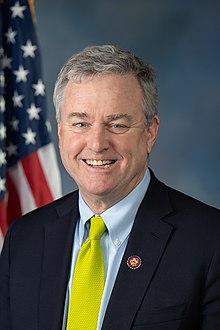He says demand must be curbed.

Rep. David Trone (D)
Washington DC (KM) Congress is back to work in Washington. While legislators are still deadlocked on who to select as House Speaker, Representative David Trone (D-Md) says more work needs to be done in combating substance misuse. “We got to drive more dollars ands success in that area,”: he said.
Last year, Congress passed legislation to provide grants to state and local governments for prevention, harm reduction (Naloxone) and recovery for persons getting of opioid addictions. “We were able to finish really strong. We got our State Opioid Response bill passed, literally the last day. That puts $8.75-billion dollars over five years in SOR grants,” he says
Other legislation dealing with opioid addictions include the Opioid Treatment Act which modernizes and improves the process of obtaining methadone to treat an opioid disorder, and to allow pharmacies to dispense methadone. Another bill is called the Fighting Emerging Narcotics Through Additional Nations to Yield Lasting (FENTANYL) Results Act which authorizes the US Department of State to build foreign law enforcement capacity to detect synthetic drugs and carry out an international exchange program for drug demand reduction experts.
“There’s an awful lot improvements we could make because we still lost 107,000 folks,” he said. “We got to figure out how to slow down the fentanyl coming across the border. Absolutely, we need a secure border. There’s not question about that.”
But Trone says closing the border with Mexico is not the answer. “We can’t close the border because there’s too much trade. But we’ve to have a secure border. Right now, it’s without the cooperation of the Mexican government. And we do not have that cooperation,” he said.
Fentanyl is a synthetic drug manufactured by the Jalisco and Sinoloa Cartels in Mexico with materials imported from China. Trone say Mexico refuses to cooperate with the US in stemming the fentanyl trade. “And the Mexican Government has done virtually nothing in trying to work with our DEA, work with our Customs and Border Patrol. And until we get their cooperation, the fentanyl going to come through,” he says.
Trone says China is also not cooperating in slowing the exports of materials to make fentanyl. “And I met with the Chinese Ambassador over and over. They’ve written a lot of nasty letters because I’ve called them out and said ‘you’re not stopping it. You’re talking the talk, but not walking the walk. You re not getting it done,” he says.
He also says the source of the fentanyl coming into the US from Mexico is not coming from migrants attempting to cross the border. “It’s coming by car. It’s not coming by people. That’s a misnomer. Ninety-six percent of the fentanyl is crossing the border by car, passenger vehicles, driven by Americans; Americans getting paid by the cartels,” he says.
Trone has taken a strong interest in curbing fentanyl because he lost his nephew to a drug overdose. He says the country needs to reduce its demand for drugs like fentanyl in order to curb the trade in this dangerous narcotic.
By Kevin McManus